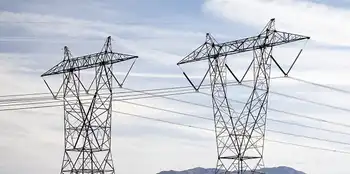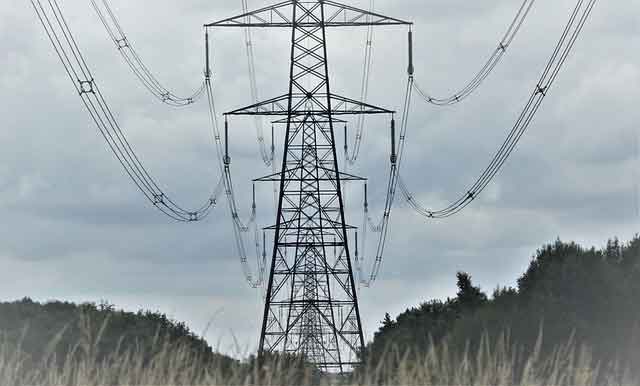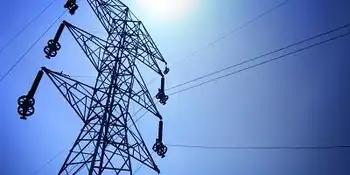GazaÂ’s hobbled power plant makes millions despite turmoil
While Gaza's 1.5 million residents, blockaded by Israel, face electricity shortages, the Palestine Electric Co.'s (PEC) profits were $6.3 million in 2008, up from $4.4 million in 2007.
Profits are largely distributed in tax-free dividends.
The gains came even though the plant has been operating at less than half capacity due to the embargo that chokes fuel and spare parts, and past bombings by Israel.
Critics decry what they call a lopsided deal that guarantees the PEC a fixed annual fee from the Palestinian Authority, which is bankrolled with aid from Western governments.
Shareholders say the 20-year contract, which began in 1999 when the late Yasser Arafat was president, is fair and that dividends are a reward for investing in a high-risk environment.
"When people are investing, they should get a return," said Walid Salman, the PEC's executive managing director.
Salman said the firm also invested in the people of Gaza, providing free water for schools, hospitals and refugee camps.
Past efforts by West Bank-based Prime Minister Salam Fayyad to reopen the PEC's contract stalled. Many large PEC shareholders play a powerful role in the Palestinian economy and are close to Arafat's successor Mahmoud Abbas, officials say.
Opponents of reopening the contract say it would undercut the PA's standing at a time when the United States, the European Union are trying to promote large-scale foreign investment.
Under the terms of the contract, the PA is obliged to pay the PEC a roughly $29 million annual "capacity charge", in addition to providing it with fuel to run the plant.
According to annual reports, the PEC's board declared $6 million in dividends for 2006, a year when Israel bombed the plant, cutting electricity supplies. Profits that year were $7.4 million. For 2007, it declared $3.6 million in dividends.
The dividend for 2008 has yet to be declared.
"Almost everybody's profits are going down but this company's profits are going up," said a senior Palestinian official who spoke on condition of anonymity because he works with PEC board members. "It is a pretty healthy profit margin."
Salman dismissed that, pointing to far larger profits at other companies, including a Palestinian mobile phone giant.
"We are working in a very exceptional situation. It's the minimum profit an investor would accept," he said of the firm's goal of paying 10 percent annual returns. He said similar projects in other developing countries produced double that.
Consolidated Contractors Co. (CCC) is the biggest PEC shareholder. In 1999, the firm teamed up with Enron Corp to build the 140-MW plant. The start of a Palestinian uprising in 2000 and Enron's collapse in 2001 set back the $150 million project but the plant began operating in 2003.
Other major shareholders include the Palestine Investment Fund (PIF), a holding company for public assets, whose board, appointed by Abbas, includes top CCC executive Samer Khoury, and the Arab Palestinian Investment Co. (APIC), which lists Abbas' son Tarek as a vice president.
As finance minister between 2002 and 2005, Fayyad headed the PIF and clashed with the CCC when he tried to cut the fixed payments to the PEC, Palestinian officials recalled.
The contract survived, but Salman said the PA was in arrears by some $21 million. Samer Khoury and other CCC executives could not be reached for comment.
Since 2006, the EU and member states have aided the PA by paying for plant fuel, costing some $130 million last year.
Western and Palestinian officials said Abbas' office repeatedly asked the bloc to pay the capacity charges as well. The EU refused. Abbas' office made clear the payments to the PEC could not be renegotiated easily, the officials said.
A senior Western diplomat involved in the talks said the EU did not want to "subsidize a private company" whose deal was "not favorable to the PA and quite favorable to shareholders".
A former Western adviser to the PA said: "They got a good... deal. During the worst of times, the power plant made money at the expense of the Treasury. I don't fault CCC. I fault Abbas."
Abbas' chief economic adviser Mohammad Mustafa said it would be a mistake to try to undo the contract. "It won't reflect positively on the Palestinian Authority to renege on a signed contract," he said. Mustafa, who also chairs the PIF and sits on the PEC board, added that dividends paid to the PIF were reinvested "back into the system again".
Fayyad, who returned as prime minister in 2007 after Hamas' takeover of the Gaza Strip, still gets upset when he approves a payment to the PEC, current and former aides say.
Salman said the prime minister dropped his opposition to the contract after an independent audit. Fayyad declined to comment.
While conditions in Gaza deteriorated, the PEC's 2008 annual report touts the firm's "solid" financials. PEC chairman and CCC co-founder Said Khoury said: "Our future is promising and we are looking forward to another year of unstoppable growth."
Related News

Analysis: Out in the cold: how Japan's electricity grid came close to blackouts
TOKYO - Japan's worst electricity crunch since the aftermath of the Fukushima crisis has exposed vulnerabilities in the country's recently liberalised power market, although some of the problems appear self-inflicted.
Power prices in Japan hit record highs last month as a cold snap across northeast Asia prompted a scramble for supplies of liquefied natural gas (LNG), a major fuel for the country's power plants. Power companies urged customers to ration electricity to prevent blackouts, although no outages occurred.
The crisis highlighted how many providers were unprepared for such high demand. Experts say LNG stocks were not topped up ahead of winter and…




